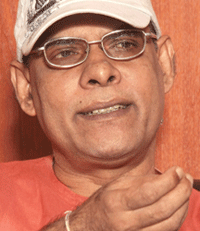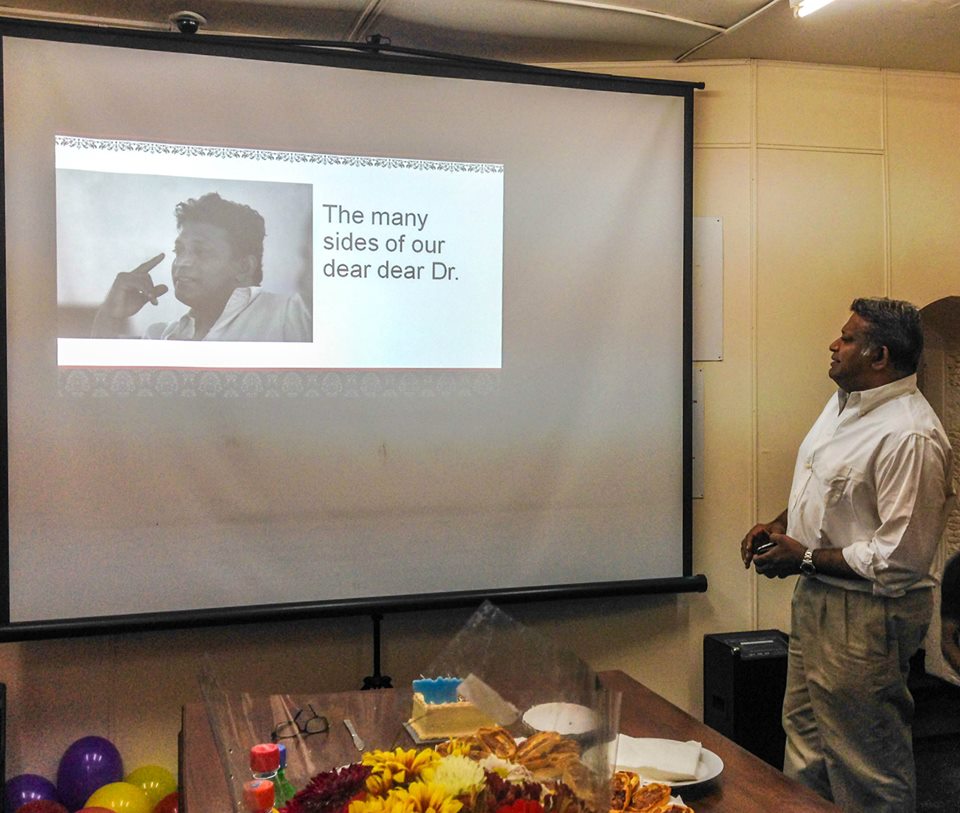By Michael Roberts –

Dr. Michael Roberts
Having come across Tammita-Delgoda’s 2009 article “Reading between the Lines” for the first time in 2014, I reproduced it in Thuppahi for several reasons. His essay reveals how significant figures in the Western media world participated actively in the highly effective propaganda war sustained by the LTTE networks abroad working in coordination with the Tiger directorate in the Vanni, armed as the Tigers were with modern satellite technology.
As Tammita-Delgoda’s news account indicates, Marie Colvin, an intrepid war correspondent who ultimately paid a price of death for her boldness when she was caught in crossfire in Syria in 2012, was one of those partial to the LTTE camp. Eight years earlier, in March-April 2001, she had used her Tamil connections to slip beyond the Government of Sri Lanka’s (GSL) frontlines into the territory of Thamilīlam, the de facto state of the LTTE, and was injured when returning. The details surrounding this incident are highly relevant to our examination of journalistic ethics and are addressed at length below. It is adequate for the moment to note Colvin’s well-known “empathy for the underdog” and her devotion to the plight of civilians in war-torn arenas (DBS Jeyaraj 2012)
It is common for anthropologists and other ethnographers as well as journalists to develop rapport with the people in foreign arenas where they research or gather stories. Shyam Tekwani, Anita Pratap and a BBC team were among the few who entered LTTE territory during war periods to engage in reportage. Frances Harrison was based in Colombo as BBC correspondent from 2000-04 which included the ceasefire period from 2001 when access to Thamilīlam was easier; while the Dushiyanthini Kanagasbapathypillai’s position as her aide facilitated interaction with Tamils in Colombo as well as those in Thamilīlam.

Marie Colvin
The degree to which such rapport dictates the content of reportage is the issue which all readers must assess on a case by case basis. That is the central focus of this survey. Does a reporter or ethnographer become captive to the struggles of the people studied — whether from ideological bonding or sympathy or both? Tekwani managed to retain an independent perspective on the Tigers (see Ross 2010 and Tekwani 2009). But what can we say about Marie Colvin?
Colvin’s sympathy for the underdog and for radical causes appears to have rendered her into a mouthpiece for Tiger propaganda. Let’s take one instance: the title of a report filed on 22 April 2009 in the Sunday Times runs “Artillery pounds wounded Tamils trapped on beach.” As such, the heading misleads the British public: it does not tell them that the Tamil civilians were “trapped” because the LTTE was using them as (a) hostages; (b) a defensive formation and (c) a means of inspiring international intervention by developing a picture, in crescendo voice, of “an impending humanitarian disaster.” The latter emphasis, a critical and central strategy of the LTTE,[1] was missed out entirely or underplayed in virtually all international reportage on the war by the US embassy,[2] UN agencies and a clutch of newspapers who did attend to the hostage factor in late 2008 and early 2009. It is to the credit of Frances Harrison that she bucks the trend and discerns this dimension of LTTE policy in Still Counting the Dead.[3]
It was the second of these goals that was the foundation of LTTE strategy.[4] As such, this goal directed the organisation’s propaganda tactics. To this end it deployed (1) reports from the Tamil medical personnel working in their territory;[5] (2) verbal and other accounts conveyed by Tamil functionaries in INGOs, among them ICRC personnel, who were still operating within the declining space of Thamilīlam; (3) leavened occasionally by the accounts of foreigners such as Harun Khan and Dalziel of the ICRC who had brief spells in the Vanni Pocket;[6] and (4) clever misinformation and disinformation planted in the minds of liberal radical journalists (both foreign and local) located in Colombo — with Ravi Nessman of Associated Press[7] and Gordon Weiss, Media Officer for the UN agencies in Colombo, being among their most effective cat’s-paws.
As Muralidhar Reddy, correspondent for The Hindu in Colombo and an experienced hand in that arena, remarked:
“The only source of western reporters based out of Colombo during the last phases of war, other than the Defence Ministry, were the LTTE cadre doctors and auxiliary staff. Amazingly all the doctors in the field were not only armed with satellite phones but happily accessible to Colombo journalists. [Few] Colombo based journos [raised questions as to how] doctors amid all the blood and gore could spare time to speak to journalists. It is their version of the battle zone which dominated the world space that time. Every single person of my tribe outside Sri Lanka has never bothered to wonder how come every single doctor and the auxiliary staff emerged unscathed from the battle zone” (email to Roberts, December 2013).
Indeed, Gethin Chamberlain told readers of the Guardian on the 13th May 2009 that the doctors “were the eyes and ears of the world” (Waidytilake 2012). Of the 25 articles on the war in Sri Lanka over April and May, nine Guardian headlines used words attributed to the doctors, while 20 articles referred to the accusations of widespread bombing and heavy casualties (Waidytilake 2012).
The gullible acceptance of the half-truths and fabrications mixed with factual truths (there certainly were civilian casualties) purveyed by the medical men and Tamil NGO functionaries located within the Vanni Pocket,[8] a prison corral set up by the LTTE, extended beyond Colombo and its bourgeois salons to the powerful media networks in London, Manchester, New York and other centres in the West. Here the reports conveyed by TamilNet were bolstered by the horror stories retailed by numerous Tamils whose understandable anxieties and emotional voices girded the truth-effect of their tales. The force of these tales was compounded by the agit-prop campaigns of LTTE associations and Tamil community organisations in these countries (e.g. CNN 2009).
There is room to conjecture that several news agencies and several well-placed Western journalists were in the pockets of the LTTE because of their liberal or radical leanings and specific friendships with key LTTE figures built up over time. When Balasingham Nadesan and Seevaratnam Puleedevan, the LTTE’s political commissars, frantically appealed for Western intervention to save the Tiger command as the SL Army was at the ‘door’ of their bunkers on the night of 17th May 2009, Marie Colvin was among the conduits they turned to.[9] Colvin is known to have promised to weigh in. She did: “she woke up the UN Special envoy Vijay Nambiar[10] at midnight and obtained an assurance from him” to the effect that he would make arrangements for “the safe surrender of some senior LTTE personalities and around 2000 civilians” (DBS Jeyaraj 2012) — an impossible project at that stage as anyone with ears to the ground in Colombo could have told both her and Nambiar. What matters here, however, is this evidence, this measure of Marie Colvin’s commitment to the LTTE leadership, its fascism[11] notwithstanding.
This leaning had developed from 2001, if not earlier. Because of her sympathy and interest in radical causes she visited Sri Lanka in March-April 2001 as an accredited Sunday Times correspondent. This was at a point when the government forces had been severely mauled by the LTTE war machine during Eelam War III and when ceasefire negotiations were in progress. Typically innovative and intrepid, Colvin got herself smuggled into the LTTE territory with the assistance of LTTE networks in contravention of GSL rules (Jeyaraj 2012). The prize was a reporter’s coup: an interview with the Tiger political chief Thamil Chelvam.[12]
She paid a heavy price for this boldness. She had apparently “walked 30 miles through jungle with her Tamil guides to evade government troops” on the way in (her tale to Greenslade 2012), so it must have been in the course of another hike back with a Tiger escort that they ran into a Sri Lanka Army patrol in the jungle north of Vavuniya. A skirmish seems to have ensued. It was in this engagement that she was badly injured by grenade shrapnel and lost her left eye.
The empirical details relating to this incident constitute a test for journalistic rigour and honesty because one is faced with conflicting accounts. In his valedictory memoriam DBS Jeyaraj has this description of the incident: “When she accompanied a group of people entering through the checkpoint at Parayanaalankulam on the Vavuniya-Mannar road there was an unexpected skirmish in which a grenade was flung at her. She was injured and lost blood. Her eyesight was impaired.” (2012).
The tale from Colvin and those close to her is a mite different…. Well, Rather more than a mite. She told a reporter friend Lindsey Hilsum of Channel 4 News that when her little band was spotted by the Army soldiers she called out “journalist, journalist!” This act, in her view, did not restrain her attacker: he “knew what he was doing“(Wikipedia). In short they wanted to get her. Her mother Rosemary Colvin provides a variant of the same tale: “She held up her press credentials, [but] they lobbed a grenade at her. She was arrested and tied up for 10 hours without medical care before the US State Department could get her out.”[13] Since the incident occurred during a ceasefire period declared (unilaterally) by the government on the 10th April, the Tiger internet agency TamilNet accused the Army of truce violation and said that it was “an act of cowardice by nervous trigger-happy soldiers” (TamilNet 2001).
What Marie Colvin (and TamilNet too) has kept hidden from her associates is a startling set of facts pertaining to this incident at Primandalkulam on 16th April. The Tiger squad was spotted by an SL Army listening post [presumably as it was seen crossing the frontlines]. A skirmish seems to have ensued and five Tigers, including an Intelligence officer, were apprehended. In the stilted style so typical of officialdom, the Ministry of Defence account says: “during a subsequent search of the area troops found a female (a foreigner) with injuries. The injured foreigner was initially evacuated to the field hospital Vavuniya and then to the Anuradhapura Base Hospital on the advice of doctors. She had sustained grenade shrapnel injuries above her left eye, left and right shoulders and right side of the chest. She was subsequently identified as a foreign journalist. According to a note made in her notebook she had met with Thamil Chelvam on 8 April 2001. The injured journalist was evacuated by air to COLOMBO at 0630 hrs on 17 April 2001.”[14]
It is typical of the enterprise of DBS Jeyaraj that he has secured a photograph of Marie Colvin being attended to by medical personnel at a field hospital in Vavuniya on the 17th April. This picture seems to contradict Rosemary Colvin’s accusation that she did not receive early medical treatment. Be that as it may, powerful forces intervened thereafter: no charges were leveled against her and she was evacuated to the West through the good offices of the British and/or US embassies.
The different accounts pose a problem for those seeking empirical veracity. Therefore they have a bearing on the focus of this essay. At this point, however, it is the consequences arising from this set of events, including Marie Colvin’s selective recollections, that is pertinent for our review.
For one: she overcame the traumatic process of medical recovery and the loss of eyesight in one eye. Ever stoic and strong, she returned to her journalist role at the Sunday Times in London. For another, she immediately became a heroine in the reckoning of ardent Sri Lankan Tamil nationalists. One K. Thiru Kumaran, a Tamil living in the locality of the Colvin family in north-eastern USA, even sent a note to a local newspaper which lauded her work on behalf of “the suffering Tamils,” accused the Sri Lankan government of wounding her deliberately and prayed for her speedy recovery.[15] Many Tamils, whether Saivite, Vaishnavite or Christian, are well-known for their religious devotion, so this message was undoubtedly from the depths of his heart.
Thirdly, such adulation and the fame arising from her interview with Thamil Chelvam enables one to surmise that, from that point in April 2001 (if not earlier), she developed a strong rapport with the LTTE and its supporters over the following years.
Once Colvin recovered and returned to work at the Sunday Times in London, it follows that her interaction with the Tamil Tiger network would have been enhanced. The question we must address is this: had she risen beyond the position of “sympathetic fellow-traveller” of the LTTE to that of “accomplice”? Was she devoted to the cause of “report[ing] what is happening” and adhering to the journalists’ “mission to speak the truth to power” (her own words — in Colvin 2010)? Or was her truthfulness compromised by ideological bonding and mateship? And could she adhere to these high principles of empirical veracity when she reported on battlefront events from a desk in London?[16]
This is a critical issue because of the weight she brought to the causes she addressed in her reportage. By 2008/09, she had been with the Times group for some 19 years and would have carried clout in editorial circles. What is more, she had an eye-patch, that mark of bravery and resoluteness in cause. She would have been a formidable presence in any face-to-face debate or roundtable review. Thus, the news items she presented on the war in Sri Lanka during the course of 2008 and 2009 would have carried considerable persuasive power for British and other readers attending to the events.
Our evaluation of her reports can be guided by the yardsticks she herself postulated during a poignant and prestigious moment that commemorated journalists who died on conflict and war duty, namely, a service at St Brides’ Church in London which drew an audience that included news editors and Camilla Duchess of Cornwall. Colvin’s sermon included the following proclamation:
Despite all the videos you see from the Ministry of Defence or the Pentagon, and all the sanitised language describing smart bombs and pinpoint strikes, the scene on the ground has remained remarkably the same for hundreds of years. Craters. Burned houses. Mutilated bodies. Women weeping for children and husbands. Men for their wives, mothers children. Our mission is to report these horrors of war with accuracy and without prejudice…..
Many of you here must have asked yourselves, or be asking yourselves now, is it worth the cost in lives, heartbreak, loss? Can we really make a difference?
I faced that question when I was injured. In fact one paper ran a headline saying, has Marie Colvin gone too far this time? My answer then, and now, was that it is worth it.
…. We go to remote war zones to report what is happening. The public have a right to know what our government, and our armed forces, are doing in our name. Our mission is to speak the truth to power. We send home that first rough draft of history. We can and do make a difference in exposing the horrors of war and especially the atrocities that befall civilians.
Hers, then, was a critical voice, one prepared to question the work of her own US armed forces and those of Britain. Having met her and been impressed by her ebullience, directness and humour, DBS Jeyaraj summed up her approach in a nutshell: “she was a frontline warrior for truth journalism” (2012). It is this yardstick that must also guide our assessments of her reportage.
A fuller study must embrace a substantial span of time and encompass The Times of London group as a whole.[17] For the moment however let me concentrate on one of her reports dated 22 March as a litmus test because there was an observer at the rear battle front embedded with the SL Army’s 53rd Division under General Kamal Gunaratna at precisely this moment in the shifting struggle, namely, from the 17-to-19th March.[18] This was Sinharaja Tammita-Delgoda whose several reports on the war are marked by precise language and a manifest capacity to marshal empirical detail productively.[19] As with any reportage, of course, his purview will be partial to one locality and thus a “fragment” only. But Tammita-Delgoda was at the rear battle front and not in Colombo or London.
Marie Colvin’s Report of 22 March 2009 entitled “Artillery pounds wounded Tamils trapped on beach”
The power-packed headline is supported by striking punch lines at the start: “A THOUSAND amputees were among the wounded and dying waiting to be rescued from a beach in northeast Sri Lanka yesterday, according to aid agencies. Frightened Tamil families … were hiding in makeshift trenches as they came under artillery fire while waiting to be evacuated from Puthumathalan beach” (Colvin 2009).[20] This promising beginning is followed by bits and pieces of information thrown together in a jumble, with some ‘facts’ referring to a named Red Cross source (female) and an unnamed MSF doctor. It ends with a statement from Joan Ryan, a British MP who threatens to have Sri Lanka evicted from the Commonwealth. As significantly, the jumble includes an excerpt from her interview with Balasingham Nadesan of the LTTE who complained of non-stop artillery attacks and requested a ceasefire as well as international monitors, while stressing LTTE’s willingness to abide by a referendum among the Tamil people. Nowhere is it indicated that Colvin was in London. Some readers may have conceivably thought that she was located in Sri Lanka.
Citing “aid agencies,” Colvin’s report includes the following assertion: “More than 300 civilians were being killed every week in artillery or air attacks, or were dying for lack of medical care, food or water.” It adds: the “Tamils are desperate because the last hospital in the area was forced to close after twice being bombed by the Sri Lankan army.” While the hospital is not named, discerning people would have been aware that the only fully-fledged hospital[21] that existed in the battle theatre within the Vanni Pocket at that stage was at Puthukkudiyirruppu (PTK).
After the LTTE was forced to abandon Kilinochhchi on 31 December 2008 and then lost control of Mullaitivu in early February, PTK was the only town in Tiger hands. It was one of their bastions, while town and locality also contained a satellite centre, a suicide bomb factory and bunkers associated with some commanders (e.g. Soosai). The LTTE, therefore, had fought hard to retain this locality in February and early March.
Our assessment of the Colvin news item of 22nd March and the degree of her adherence to “truth journalism” requires a degree of hard realism through attention to (1) the geographical context of the battle theatre and (2) the considerable military strength and determined resistance revealed by the LTTE during those early months of 2009.
We can lean on Serge de Silva-Ranasinghe’s detailed exposition of the war in several essays presented in Australian military journals in January to May 2009. Located in Perth he accessed GSL military sources and sifted meticulously through Sri Lankan newspapers and other online sources to build a substantive picture of the cut and thrust of battle in ways that the many reporters in Colombo seem to have been incapable of. Let me quote separate chunks from one of his essays in March 2009 at length so as to provide you with some comprehension of the context.
The months of February and March have witnessed continuous heavy fighting almost day and night, where the LTTE has marshalled all its resources … Commencing from February1-4, the LTTE launched major counterattacks against Task Force 4 and the 59th Division, which lay siege to the outer southern approaches of the LTTE frontline. The ambitious LTTE counterattack had the objective of recapturing Mullaitivu town in time for Sri Lanka’s Independence Day, on February 4, and forced the SLA to retreat as far south as Oddusudan, some 10 kilometres away. Initially, the LTTE achieved almost total surprise by infiltrating among groups of fleeing civilians crossing the frontline and also using the Nandikadal Lagoon near PTK and Mullaitivu town. In the initial attack the LTTE used several Vehicle-borne Improvised Explosive Devices (VBIEDs) to breach SLA defences followed by frontal counterattacks with over 500 guerrillas using a captured T-55 Main Battle Tank and a T-85 Armoured Personnel Carrier (later knocked out by infantry). The LTTE made immediate territorial gains forcing Task Force 4 and the 59th Division to hastily fall back on their flanks between 1.5-3 kilometres. It took four days of heavy fighting to reduce the LTTE salient with reserves from the Air Mobile…..
Ominously, while diversionary thrusts were launched against the 55th Division,a simultaneous and larger counterattack was launched against the neighbouring 58th Division where groups of guerrillas infiltrated and succeeded in pushing back its forward elements up to 1.5 kilometres. The fighting was heavy as exemplified by the 20th Gemunu Watch which destroyed two VBIEDs and fought off three local LTTE counterattacks. However, large groups of LTTE infiltrators were engaged in pitched skirmish actions with rear echelon troops…. Strategic reserves consisting of four squadrons of elite Special Forces and the 2nd Commando Regiment were immediately thrown into battle which saw heavy fighting last for over 48 hours before the 58th Division stabilized its front.
For the first time since the capture of Jaffna Peninsula in Operation Riviresa (c.1995), the SLA has engaged in the only instance of major urban combat in Eelam War 4. Sometime back Task Force 4, which is now in reserve, laid siege to the southern approaches of PTK, but due to insufficient strength and firepower was unable to breakthrough LTTE lines. Hence, the arrival of supporting formations such as the 53rd and 58th Divisions, west and north-west …Two captured T-55 Main Battle Tanks were also employed in the defence of the town. Not surprisingly much of the fighting was characterized by ferocious house to house combat. Practically every metre of ground was heavily contested which took the SLA weeks of heavy fighting to advance just over five kilometres to capture the town centre. While urban combat at PTK is drawing to a close, the LTTE have substantially escalated infiltration operations to conduct guerrilla warfare in rear echelon areas, which have caused serious operational problems. (“The Battle for the Vanni Pocket,” Asia-Pacific Defence Reporter, March 2009, 35: 18).
Besides these LTTE capacities their use of civilianns as sandbags posed a serious problem for the GSL forces. The LTTE was adamantine on this dimension: “We are fighting for the people [so] the people must stay with us,” they told the Human Rights Watch in 2008.[22] Thus, in noting the difficulties of traversing an area of scrub jungle interlaced with waterways such as the terrain surrounding the strategic LTTE base at Mullativu adjacent to the coast, in his essay in January 2009 de Silva-Ranasinghe noted that the “presence of large concentrations of civilians in [this] environment is likely to hinder operations by limiting use of air and artillery support” (“Battle of Kilinochchi,” 2009a: 8). This is what transpired. In the face of this dilemma the “last stages of the battle for Mullativu base [became] largely an infantry focused offensive, with sniper teams and special forces to enhance precision” (“(“Battle for Mullaitivu,” 2009b: 11-12).
De Silva-Ranasinghe’s sources are mostly from the government side. To anyone familiar with the LTTE’s organisational capacities and their fighting elements’ commitment to their cause such details ring true. Moreover, in his March 2009 article he notes that the “SLA casualties in recent weeks [have been] averaging 15-30 fatalities per day;”[23] while a recent communication stresses that “the SLA had well over 2000 casualties in the final five months of the war, January to May [including] about 500 killed in action in the last four weeks of the war. These are very heavy losses.”[24] These estimates are in line with other calculations that indicate that the SL forces lost 6261 personnel during Eelam War IV — with a significant proportion of these probably occurring in 2009 (Roberts, “Estimates,” 2013d).
De Silva-Ranasinghe’s several essays in early 2009 indicate how the standard format of media reportage guided by word restrictions that dictate short items of 500, or 700 or at most 1200 words, simply fail to do justice to complex topics. They also reveal how pathetic the Associated Press team of reporters[25] in Colombo led by Ravi Nessman were. Addressing the American public on the Tavis Smiley Show on 18th February 2009, Nessman lamented that “we” did not know if the LTTE still retained a conventional military capacity (Nessman 2009a & 2009b).
Such details also demonstrate how easy it would have been for the British public to have got a picture of the war that was both skimpy and distorted from the type of reports purveyed by Colvin as well as the journalists of the Guardian (for the latter, see Waidyatilake 2012). Few readers would have known that PTK was not on the coast and not embraced by the coastal strip of some 12 by 2.5 km adjacent to the Nandikadal Lagoon which had become the location where virtually the whole mass of people had been herded by persuasion and pressure. As noted by Citizen Silva in what is the most meticulous an extensive survey to date, “by the end of February 2009 virtually the whole body of some 298,000 people were encamped on what became known as the “second No–Fire–Zone”, some 14 square kilometres of space on the coast between Nanthikadal lagoon and the sea” (IDAG 2010: Section 8, point 5). For the LTTE this body of people was not only a pool of labour and conscripts. The Tamil people were also hostages and sandbags constituting a defensive formation at the same time that they served as a spectre of “impending humanitarian disaster” which could potentially activate world power interventions that would enforce a ceasefire (see fn. 1).
Significantly, in early February 2009 both the US ambassador Robert Blake and UN personnel had combined to press the GSL leaders to carve out a No Fire Zone on the coast.[26] This may well have been a seed planted in their minds by Tiger emissaries abroad; but that is something we will never get to the bottom of. GSL reluctantly complied and the Second NFZ was delimited on 12th February 2009. This was a strategic coup for the LTTE: a mass of some 300,000 people parked on the coastal strip east of the Nandikadal Lagoon would serve as a defensive barrier to any amphibious operation from naval and army forces and, at the same time, provide a potential escape hatch for the Tiger directorate if some rescue operation could be engineered by KP from his location abroad.[27]
Using DBS Jeyaraj’s findings, Citizen Silva indicates that much earlier, in December 2008, “the LTTE [had] deliberately forced a body of some 10,000–20,000 civilians into the coastal stretch extending between Ambalavanpokkanai in the north to Vattavaakallu in the South in order to block the north-south advance of the 55th Brigade and 59th Brigade” (IDAG, Section 8, point 4). This was one section of the area encompassed by the second NFZ. Our focus, now, is one the situation in mid-March 2009 when Marie Colvin penned the article that moved Tammita-Delgoda to raise questions. Be that as it may, the pictures presented by TamilNet in mid-March 2009 reveal a congealed mass of people and vehicles along the untarred road running north-south in this arena,[28] the “Last Redoubt” in my terminology.
This area was the site for most of the evidence marshalled by Marie Colvin in her news report of 22nd March, partly aided by reports from Red Cross or ICRC personnel who had visited the arena in connection with humanitarian medivac operations in association with the SL Navy.[29] Thus, readers in Britain who attended to Colvin’s item of news on 22 March 2009, one supposedly guided by “truth-journalism,” would have been quite justified in thinking that the “last hospital” that had been abandoned because of heavy bombardment was located on the coast.
It was not. It was in PTK town, which is 4.9 km west of the Nandikadal Lagoon and approximately 8-to-9 km from the coast. The hospital buildings, mostly intact albeit damaged, fell to the SL Army on the 12th March. So what you get from Colvin’s news report is a misleading ‘fact’ concocted by a combination of deception, silence and ignorance (for Colvin herself may not have known where PTK was).
The deception of the public was largely the product of her own gullibility and willingness to accept every statement from Tiger friends — in England and in Sri Lanka — as definitive fact. Unfortunately for her reputation — now — Tammita-Delgoda was at the rear battle front embedded (much like Colvin, Kate Adie and other journalists in other battle theatres) with the 58th Division and saw the PTK and its hospital with his own eyes. He also took photographs.
These (and those displayed within the Ministry of Defence web site) support his own surprise at the number of buildings in the PTK locale that remained intact or only partially damaged.[30] Since he was on the scene and no less devoted to empirical fact than Colvin,[31] his facts trump the “facts” that had been conveyed by Marie Colvin because she accepted whatever Tamil functionaries (including NGO personnel) or those aligned with the LTTE told her.…and did so because she was so devoted to their cause that she had become their mouthpiece.
It is abundantly clear that on 22nd March 2009 Marie Colvin’s “mission to speak the truth to power” was shattered in the breech. One suspects, too, that this shattering impact may apply more generally to all her reports on Sri Lanka in the last phase of the war and extend to much of the Times reportage from the likes of Rhys Blakely and Jeremy Page in 2009 as well as subsequently.[32] That, however, is speculation, an explicit surmise that needs testing through detailed empirical work on the Times coverage of the Sri Lankan scene.
Epilogue
Subsequently, after her untimely death in 2012, a news account indicates that her funeral at St Dominic Church in New York was featured by a poignant expression of Sri Lanka Tamil fraternity and ideological kinship: “Outside the church, a group of Tamil people, an ethnic minority of Sri Lanka, stood vigil. Some carried posters with Ms. Colvin’s picture — featuring a black eye patch over her left eye, worn since she was injured by a grenade in Sri Lanka in 2001 — and the slogan: “Uncrowned queen of intrepid journalists.” “We lost our friend,” said Pat Pathmakumar, a member of the group, adding: “I never met her, I never talked to her. But when I heard she died, I cried.”
I too wish that Marie Colvin had not met such an untimely death. It is not politic to attack a dead person, especially an esteemed and famous dead person. Besides, I would have dearly loved to witness her response to a venture such as mine, one which seeks to hoist Colvin on her own petard.
BIBLIOGRAPHY
Blakely, Rhys 2010 “1400 People Per Week Dying in Sri Lankan Refugee Camps,” 10 July 2009, http://www.informationclearinghouse.info/article23021.htm
CNN 2009 “London Tamils lament Conflict,” 28 April 2009, http://www.dailymotion.com/ video/x8dkc6_london-tamils-lament-conflict_news AND
https://www.dropbox.com/s/3c7v54v80ab0uca/CNN%20-%20London%20Tamils%20lament%20conflict.avi
Colvin, Marie 2009a “Artillery pounds wounded Tamils trapped on beach,” Sunday Times,22 March 2009, repr. in http://transcurrents.com/tc/2009/03/ artillery_pounds_wounded_tamil.html
Colvin, Marie 2009b “Slain Tamil Chiefs were promised safety,” 25 May 2009, http://www.theaustralian.com.au/archive/news/slain-tamil-chiefs-were-promised-safety/story-e6frg6t6-1225715467354
Colvin, Marie 2010 [Memorial Speech at St Brides’ Church London] http://sunandadeshapriya.wordpress.com/2012/02/22/marie-colvin-in-her-own-words-our-mission-is-to-report-the-horrors-of-war/
De Silva-Ranasinghe, Sergei 2009a “Victory at the Battle of Kilinochchi,” Defence Review, Jan. 2009, 2/6: 7-8.
De Silva-Ranasinghe, Sergei 2009b “Battle for Mullaitivu enters Final Stage,” Defence Review, Feb. 2009, 3/1: 10-12.
De Silva-Ranasinghe, Sergei 2009c “Political and Security Implications of Sri Lanka’s Armed Conflict,” Asia-Pacific Defence Reporter, Feb. 2009, Vol. 35/1, pp. 20, 22-24.
De Silva-Ranasinghe, Sergei 2009d “The Battle for the Vanni Pocket,” Asia-Pacific Defence Reporter, March 2009, Vol. 35/2, pp. 17-19 — SEE http://www.dtic.mil/dtic/aulimp/citations/gsa/2009_157395/156554.html
De Silva-Ranasinghe, Sergei 2009e “Tiger Trail. Strategic Defeat of the LTTE and its Implications,” Force, April 2009, pp. 50-54.
Gamage. Daya 2014 “The American Agenda for Sri Lanka’s National Issues, 1970s-2014,” 5 July 2014, http://thuppahi.wordpress.com/2014/07/05/the-american-agenda-for-sri-lankas-national-issues-1970s-2014/
Greenslade, Roy 2012 “Marie Colvin Obituary,” The Guardian, 22 February 2012.
Harrison, Frances 2012 Still Counting the Dead. Survivors of Sri Lanka’s Hidden War,London: Portobello Books.
Hoole, Rajan et el 2001 Sri Lanka. The Arrogance of Power, Nugegoda: Wasala Publications for UTHR (Jaffna).
Hilsum, Lindsey 2012 “My Friend Marie Colvin,” World News Blog Channel 4.
IDAG 2013 “The Numbers Game: Politics of Retributive Justice,” http://www.margasrilanka.org/ OR http://www.scribd.com/doc/132499266/The-Numbers-Game-Politics-of-Retributive-Justice.
Jeyaraj, DBS 2012 “Marie Colvin, The Uncrowned Queen of Intrepid Journalists,” 26 February 2012, http://tamilweek.com/news-features/archives/2925.
Jeyaraj, DBS 2011 “KP” speaks out. An Interview with Former Tiger Chief, Vavuniya: NERDO.
Karppi, Dagmar Fors 2001 “Woman Journalist Gets Her Story. In Spite of Grenade Attack, Marie Colvin Files Her Report,” http://www.antonnews.com/oysterbayenterprisepilot/2001/04/27/news/colvin.html
Lee, Mathew R. 2014 “Five Years After Sri Lanka Bloodbath, More on UN Role, Nambiar & Amman,” n. d., http://www.innercitypress.com/sri3memorybanned051814.html.
Ministry of Defence, SL 2001 “Marie Colvin’s Encounter with the Sri Lankan Army,”4 November 2014, http://thuppahi.wordpress.com/2014/11/04/marie-colvins-encounter-with-the-sri-lankan-army-16th-april-2001/#more-14399.
Nessman, Ravi 2009a “The War in Sri Lanka: Ravi Nessman’s Slanted Story for USA on the Tavis Smiley Show, 18 February 2009,” 31 January 2014, http://thuppahi.wordpress.com/2014/01/31/the-war-in-sri-lanka-ravi-nessmans-slanted-story-for-usa-on-the-tavis-smiley-show-18-february-200/
Nessman, Ravi 2009b“Interview with Associated Press Writer Ravi Nessman: AP Sri Lanka Bureau Chief,” 18 February 2009, https://www.youtube.com/watch?v=a2ZqLlpuLBE.
Nessman, Ravi 2009b “Satellite shows Sri Lanka shelling says rights group,” 13 May 2009, http://mg.co.za/article/2009-05-13-satellite-shows-sri-lanka-shelling-says-rights-group.
Page, Jeremy 2010 “Restored Buddhist shrines sparks conflict in Sri Lanka,” 6 April 2010, http://southasia.oneworld.net/news/restored-buddhist-shrines-sparks-conflict-in-sri-lanka#.VFYMEsmTD9o
Roberts, Michael 2010a Fire and Storm. Essays in Sri Lankan Politics, Colombo: Vijitha Yapa Publications.
Roberts, Michael 2010b “Hitler, Nationalism, Sacrifice: Koenigsberg and Beyond…Towards the Tamil Tigers,” http://www.srilankaguardian.org/2010/03/hitler-nationalism-sacrifice.html.
Roberts, Michael 2010c “Omanthai! Omanthai! Succour for the Tamil Thousands,” 9 August 2010, http://thuppahi.wordpress.com/2010/08/09/omanthai-omanthai-succour-for-the-tamil-thousands/
Roberts, Michael 2011a “People of Righteousness march on Sri Lanka,” The Island, 22 June 2011 and http://thuppahi.wordpress.com/2011/06/27/people-of-righteousness-target-sri-lanka/
Roberts, Michael 2011e “Amnesty International reveals its Flawed Tunnel-Vision in Sri Lanka in 2009,” 10 Aug. 2011, http://thuppahi.wordpress.com/2011/08/10/amnesty-international-reveals-its-flawed-tunnel-vision-on-sri-lanka-in-2009/
Roberts, Michael 2012a “Inspirations: Hero Figures and Hitler in Young Pirapāharan’s Thinking,” Colombo Telegraph, 12 February 2012, http://thuppahi. wordpress.com/2012/11/26/velupillai-pirapaharan-veera-maranam/… rep. in TPS: Essays, 2014: 69-89.
Roberts, Michael 2013c “BBC-Blind: Misreading the Tamil Tiger Strategy of International Blackmail, 2008-13,” http://thuppahi.wordpress.com/2013/12/08/bbc-blind-misreading-the-tamil-tiger-strategy-of-international-blackmail-2008-13/#more-11221
Roberts, Michael 2013d “Estimates of the Death Toll among the Fighting Forces of the LTTE and Government of Sri Lanka,” http://thuppahi.wordpress.com/2013/12/08/estimates-of-the-death-toll-among-the-fighting-forces-of-the-ltte-and-government-of-sri-lanka/
Roberts, Michael 2013e “Congestion in the “Vanni Pocket,’ January-May 2009: Appendix IV for ’BBC Blind’,” 9 December 2009, http://thuppahi.wordpress.com/wp-admin/post.php?post=11272&action=edit&message=6&postpost=v2
Roberts, Michael 2013i “Witnesses to “the War without Witnesses” … Voiceless? Buried Foreign Reporters?” 30 December 2013, http://thuppahi.wordpress.com/2013/12/30/11504/
Roberts, Michael 2014a “Dedicated Medical Work Amidst the Heat of War, Death and Propaganda: In the Vanni Pocket,” 8 January 2014, http://thuppahi.wordpress.com/2014/01/08/dedicated-medical-work-amidst-the-heat-of-war-death-and-propaganda-in-the-vanni-pocket-2009/#more-11562
Roberts, Michael 2014b “Generating Calamity, 2008-2014: An Overview of Tamil Nationalist Operations and Their Marvels,” 10 April 2014, http://groundviews.org/2014/04/10/generating-calamity-2008-2014-an-overview-of-tamil-nationalist-operations-and-their-marvels/
Roberts, Michael 2014c “Visual Imagery within Political Struggles and Manoeuvres,” in Roberts, Tamil Person and State. Pictorial, Colombo: Vijitha Yapa Publications, pp. 1-44.
Roberts, Michael 2014e “Ball-by-Ball through Wikileaks: US Embassy Despatches from Colombo, 2009: ONE,” 27 August 2014, http://thuppahi.wordpress.com/2014/08/27/ball-by-ball-through-wikileaks-us-embassy-despatches-from-colombo-2009-one/#more-13481
Roberts, Michael 2014fg “KP’s Frantic Efforts to Save the Tiger Leaders in 2009 … and USA’s Pursuits,” 27 October 2014, https://www.colombotelegraph.com/index.php/kps-frantic-efforts-to-save-the-tiger-leaders-in-2009-and-usas-pursuits/
Roberts, Michael 2014i “After the Battles: Tammita-Delgoda’s Images from the War Theatre,” 30 September 2014, ·http://thuppahi.wordpress.com/2014/09/30/after-the-battles-tammita-delgodas-images-from-the-war-theatre/
Ross, Amanda 2010 “Sleeping with the Enemy, Tekwani lived with the Tigers,” UPI Next, 16 Nov. 2010, http://next.upi.com/archive/2010/11/16/Sleeping-with-the-enemy-Tekwani-lived-with-the-Tigers/1431289942817/
Seneviratne, Sudharshan 2010 “Educating Jeremy Page,” 21 April 2010, http://www.island.lk/2010/04/21/features1.html
Shanmugarajah, V. 2014 “Dr. Veerakanthipillai Shanmugarajah’s Affidavit Description of Conditions in the Vanni Pocket in Refutation of Channel Four,” 5 January 2014, http://thuppahi.wordpress.com/2014/01/05/dr-veerakanthipillai-shanmugarajahs-affidavit-description-of-conditions-in-the-vanni-pocket-in-refutation-of-channel-four/
Tammita-Delgoda, S. 2009 Sri Lanka. The Last Phase in Eelam War IV. From Chundikulam to Pudumattalan, Manekshaw Paper No. 13. Also reprinted in http://www.island.lk/ index.php?page_cat=article-details&page=article-details&code_title=10164.
Tammita-Delgoda, S. 2014a “Reading Between the Lines in April 2009: Tammita-Delgoda takes apart Marie Colvin’s jaundiced propaganda article in British newspaper,” 26 September 2014, http://thuppahi.wordpress.com/2014/09/26/rading-between-the-lines-in-april-2009-tammita-delgoda-takes-apart-marie-colvins-jaundiced-propanda-article-in-british-newspaper [orig.pubn 2009]/
Tammita-Delgoda, S. 2014b “Crossing the Lines: Tamils Escapees from the Last Redoubt meet the Army,” 21 September 2014, https://thuppahi.wordpress.com/wp-admin/post.php?post=13751&action=edit&message=6&postpost=v2 [orig, 2009].
Tekwani, Shyam 2009 ‘The Man who destroyed Eelam,” http://www.tehelka.com/home /20090523/default.asp.
TamilNet 2009 “1400 dying each week in Manik Farm–The Times,” http://www.tamilnet.com/art.html?catid=13&artid=29757.
Waidyatilake, Barana 2012 Killers on Paper: ‘Victimizers of Minorities’ Discourse in Media Coverage of the Sri Lankan War, Melbourne University Honours Dissertation, School of Social and Political Sciences.
Weiss, Gordon 2011 The Cage, Sydney: Pan Macmillan.
[1] See IDAG 2013: conclusion; Roberts, “Generating Calamity,” 2014b and Roberts, TPS. Essays, 2014: 184-203 & 292-99 and TPS. Pictorial, 2014: 219-23.
[2] The US Ambassador, Robert Blake, recognised at one point that the LTTE “refused to allow civilians to leave because the LTTE needs the civilians as human shields, as a pool for forced conscription, and as a means to try to persuade the international community to force a cease-fire upon the government, since that is the LTTE’s only hop” (Secret dispatch 133 of 5th Feb. 2009). However, this did not prevent him and USA continuously pressing for a ceasefire as one step in negotiations towards a “political settlement” (his words). Also see Gamage 2014.
[3] “The final months of the war saw the Tamil Tiger leadership cynically control the movement of the civilian population, exposing them to the horrors of battle in the hope that the appalling images of suffering would prompt the world to intervene” (Still Counting the Dead, 2012: 8). Since Colvin and Harrison may have been in touch with each other in London in 2009 one wonders why Marie Colvin did not gain this insight.
[4] As I have stressed repeatedly in Roberts, “Blackmail” (2012) and “Generating Calamity”(2014b) among other essays.
[5] See Roberts, “Visual Imagery,” 2014b: 11-13 and Hoole 2001: 403-74.
[6] Harun Khan was one of the senior UNHCR personnel who entered LTTE space with the supplies taken by Convoy 11 and remained there in late January and early February. He seems to be the principal source for the information on the shelling of the Hub area of the First NFZ in late January (detailed in Weiss, 2010: chap. 5 and utilized by the Darusman Panel as well); This shelling was attributed to the SL Army but since much of it occurred in the dark hours of early morning some doubts linger on the source of the shells. Re Dalziel’s three week sojourn in LTTE territory, see US Embassy despatch of 17th March 2009 in Wikileaks trove.
[7] See Nessman 2009a and 2009b.
[8] “Vanni Pocket” is the concept both Serge de Silva-Ranasinghe (e.g. 2009d) and I utilise to describe the circumscribed north-eastern corner of the Vanni into which Thamiīilam was reduced by November 2008. At this early point the LTTEs til controlled the arterial road between Mankulam and Elephant Pass; but once they lost control of Paranthan in December they had to evacuate Kilinochchi and the Vanni Pocket was reduced still further. See the Maps in Figs. 77 & 78 in Roberts Tamil Person and State. Pictorial, 2014: 121-22..
[9] “I had known Nadesan and Seevaratnam Puleedevan, the head of the Tigers’ peace secretariat, since being smuggled into rebel territory eight years ago” says Colvin in 2009a.
[10] Vijay Nambiar was the Special Envoy for UN Sec-General Ban Ki-Moon and left for Sri Lanka from Amman circa 17th May. He was contacted by KP (the LTTE’s international front-man) as well as Colvin re surrender possibilities.
[11] There are many analyses that document the fascist character of both Pirapāharan and the LTTE. For instance see Roberts, “Hitler,” 2010a and “Inspirations,” 2012b.
[12] “She filed reports for her paper while in the Wanni. This included the Thamilselvan interview” (Jeyaraj 2012).
[13] Other reports from Colvin and those aligned with her refer to an RPG. This little discrepancy is not that little: the RPG has a much greater range than a throw. This reminds one of the adage: “from little acorns oaks grow.” Here, an oak seems to have become an acorn in order to inflict greater accusation.
[14] I deployed several channels to extract a transcript of this document from a Ministry of Defence source, being aided by contacts that developed after I delivered a talk at ICES, Colombo in 2012 on the massive tasks negotiated by a combination of government, UN, INGO and NGO agencies at Manik Farm.
[15] “An email from K. Thiru Kumaran was sent to the Enterprise Pilot. He said, “I am writing, to highlight a proud, courageous and triumphant moment for the freedom of press brought to the world today by none other than an Oyster Bay resident. A tragic event that occurred thousands of miles away from Oyster Bay is touching the hearts of many Tamils just like myself. Marie Colvin of Oyster Bay was wounded deliberately by the armed forces of Sri Lanka. As a journalist with Britain’s Sunday London Times she traveled to the North of the island nation to cover the sufferings of the Tamil people living under a brutal embargo of the Government of Sri Lanka. Many Tamils around the world are praying for the speedy recovery of Marie Colvin” (Karppi 2012).
[16] This is aggravated by the possibility that many readers of the Times may not have been aware that she was located in London when reporting on the Sri Lankan war in 2008/09.
[17] Thus we need the type of work commenced by Waidyatilake (“Killers on Paper,” 2012) for the Daily News (Lanka) and the Guardian (Britain).
[18] Email Note from Tammita-Delgoda to Roberts, 2014. He was subsequently embedded with the 55th Division as it advanced south towards Chalai from 29-31st March and his experiences then were presented in a riveting article that was initially presented to the Indian Defence Academy (Tammita-Delgoda 2009).
[19] Tammita-Delgoda 2009, 2011a and 2014b.
[20] In the Transcurrents reprint of the Sunday Times article, a striking picture of a shell blast on sandy terrain by a stretch of water is placed strategically at this point.
[21] As distinct from several makeshift hospitals which the official functionaries and LTTE set up in schools or houses at various points in the coastal strip defined as the second NFZ or what I term the “Last Redoubt.”
[22] Quoted in de Silva-Ranasinghe, “Mullaitivu,” 2009b: 11.
[23] De Silva-Ranasinghe, “Vanni Pocket,” 2009d: 17.
[24] De Silva-Ranasinghe to Roberts, email 3 November 2014.
[25] This cluster included Krishan Francis and Bharatha Mallawarachi..
[26] “… we must persuade the government to create a new no-fire zone, perhaps along the coast, where fighting has been less intense. UN Representative Buhne commented that he had already raised the possibility of a new no-fire zone along the coast, without success,” said Ambassador Blake in “secret dispatch” No. 133 of 5 Feb. 2009. Note that the government of Sri Lanka did in fact accept this idea and carve out a NFZ along the coast on 12th Feb. 2012.
[27] On this strategy, see Roberts, “TPS. Pictorial,” 2014: 219-23. Roberts, “KP’s Frantic Efforts,” 2014 and Jeyaraj 2011: 23-31.
[28] See Roberts, “Congestion,” 2013e and TPS. Pictorial, Figs. 91 and 92.
[29] Citizen Silva has sent me figures that reveal that the ICRC and SL Navy organized 31 medivac voyages between 9th February and 9th May and that a total of 13,794 people were evacuated. From the 23 voyages for which a breakdown of these evacuees is available 3136 were injured adults, 3471 were children and the rest were “accompanying caregivers” — so that the latter made up 37.4 per cent of that partial total. See Roberts, TPS. Pictorial, 2014: Figs. 95-98.
[30] “[I]f there was indeed whole scale bombing and artillery fire of the type that has been reported, then all I would have found is ruins and rubble. As I have already pointed out, a large number of buildings still appear to be standing, even though they have been the focus of fierce fighting. This appears to suggest a relatively restrained and selective use of heavy artillery” (Tammita-Delgoda 2014).
[31] For instance, note this statement: “As I have not been to the beach side, where these reports emanate from, I can neither confirm nor deny them. Apart from the ICRC, no one else has access to the seaside,” (2014a).
[32] The allegation peddled by Page and Blakely in the Times in early July 2009 that asserted that 1400 inmates were dying each week at the detention centres in Manik Farm spread like wildfire across the international news circuits and was also emphasized on Tamil web sites such as TamilNet and Tamil Sangam. This figure was pure concoction. Significantly, there was not one news item that reiterated and elaborated upon this tale — an indication that it was a case of outsize muckraking from Sri Lankan sources that was gleefully taken up by The Times. Much later in , Professor Sudharshan Seneviratne (2010) birched Page for his article of 6th April 2010 because it (a) misrepresented a discussion with him and (b) perpetuated a story of archaeology as a weapon of Sinhalese majoritarian colonization through highly selective reportage.
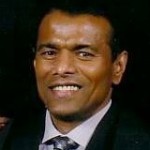
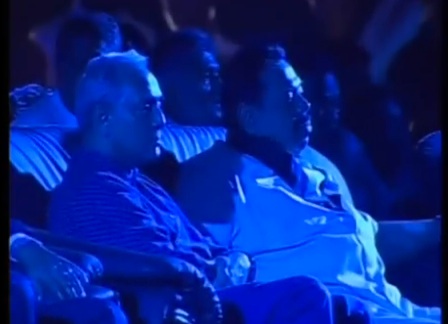 The shelf life of the workplace of the President is nonetheless two a lot more years from completion but the President calls for an election with a fantastic craving for reelection. And there are several arguments against this move on the basis that President can’t contest for a third term as he has been elected beneath the preceding law which permits only two terms with no expressed provision in the amendment, accommodating the one particular in office also to turn out to be eligible. This argument is straightforward and simple and there is no ambiguity at all about the retrospective impact of the 18th amendment in the absence of expressed provision in the amended law supplying otherwise. And on the other hand there is no question of law arisen, which is of such public value to receive the opinion of the Supreme Court, whereas the problem raised is purely concerning the interests of an person.
The shelf life of the workplace of the President is nonetheless two a lot more years from completion but the President calls for an election with a fantastic craving for reelection. And there are several arguments against this move on the basis that President can’t contest for a third term as he has been elected beneath the preceding law which permits only two terms with no expressed provision in the amendment, accommodating the one particular in office also to turn out to be eligible. This argument is straightforward and simple and there is no ambiguity at all about the retrospective impact of the 18th amendment in the absence of expressed provision in the amended law supplying otherwise. And on the other hand there is no question of law arisen, which is of such public value to receive the opinion of the Supreme Court, whereas the problem raised is purely concerning the interests of an person.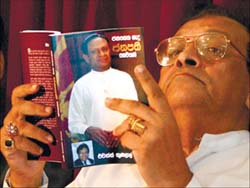 According to media reports this past week Karu Jayasuriya now seems to be the top contender as the presidential candidate proposed by the opposition parties, other feasible choices former President Chandrika Kumaranatunga, Leader of the UNP Ranil Wickremesinghe, and Ven Maduluwawe Sobhitha Thera, the convener of the National Movement for Social Justice.
According to media reports this past week Karu Jayasuriya now seems to be the top contender as the presidential candidate proposed by the opposition parties, other feasible choices former President Chandrika Kumaranatunga, Leader of the UNP Ranil Wickremesinghe, and Ven Maduluwawe Sobhitha Thera, the convener of the National Movement for Social Justice.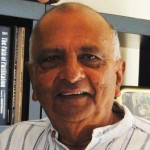

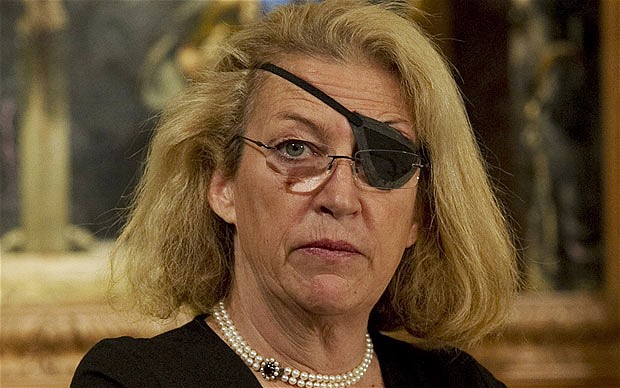
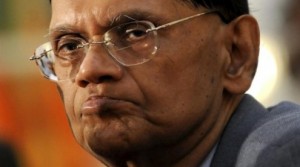


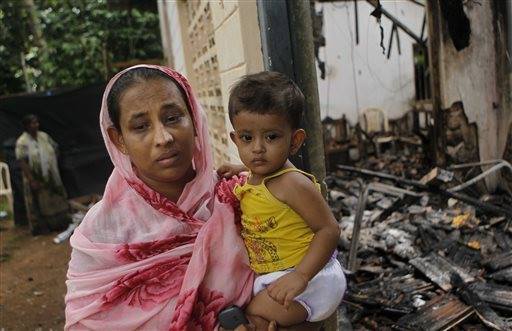 Prime Minister Mahinda Rajapaksa as the presidential nominee for the UPFA party at the 2005 Presidential election was not perceived as the frontrunner.
Prime Minister Mahinda Rajapaksa as the presidential nominee for the UPFA party at the 2005 Presidential election was not perceived as the frontrunner. 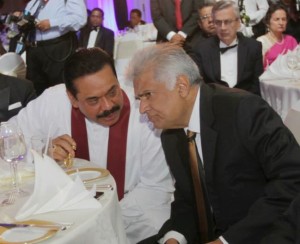 The motion to help Mahinda Rajapaksa at the upcoming Presidential election had been proposed abruptly without any notice of a resolution
The motion to help Mahinda Rajapaksa at the upcoming Presidential election had been proposed abruptly without any notice of a resolution 
